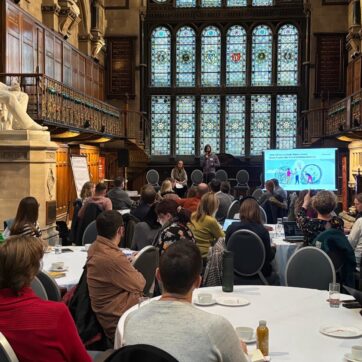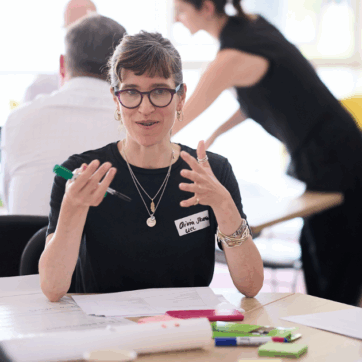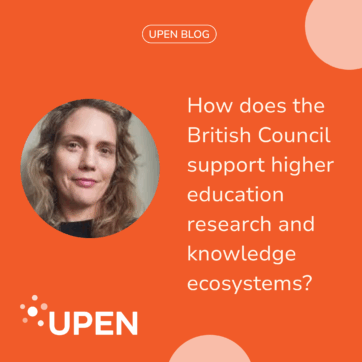The year is 2035. Location, the Arctic. The summer ice sheet has retreated and opened navigable shipping routes, fish stocks have migrated north and are suffering from over-fishing, and the green energy transition has skyrocketed demand for rare earth elements.
What now?
No, we cannot predict the future. But in a quickly changing and complex world, how can policymakers be prepared for such possible crises, and how can parliamentary scrutiny contribute to that? Over the past year, I’ve been working in Westminster to consider just that.
In Spring 2023, I joined the Parliamentary Office of Science and Technology (POST) as a Thematic Research Lead for International Affairs and National Security. The Thematic Research Lead (or TRL) programme was introduced to facilitate and enhance the use of research evidence and expertise in Parliament through effective knowledge exchange and collaboration. During this time, I worked on a pilot programme sponsored by the Foreign Affairs Committee and spearheaded by the International Affairs Unit (a staff team in the House of Commons), that has potential to innovate how Members of Parliament scrutinise Government and anticipate future policy needs, with evidence and expert advice at its core. Collaborating with teams across Parliament, we developed a ‘policy simulation’.
Over several months, I took on the role of ‘game designer’ and led the content development of a policy simulation on environmental change, deep-sea mining, and geostrategic competition in a future Arctic. Our aim was to use simulations as a dynamic learning experience that would immerse parliamentarians in Arctic issues, quickly expand their knowledge base, and stress test the UK’s ability to promote its interests in a future regional crisis.
We decided to set our scenario 15 years into the future when evidence suggests the conditions might be ripe for a deep-sea mining crisis in the Arctic, but we kept the UK’s current international relationships. This allowed us to explore the question: Could the UK advance its interests in a crisis in the Arctic, given our current institutions and bilateral relationships?
On the day of the simulation, Members from both Houses of Parliament were divided into teams and assigned countries: The UK, USA, China, Denmark, Norway and Russia. They were then handed a briefing packet containing their countries’ objectives. As well as Members, teams included an academic with expertise on their assigned country, and a member of parliamentary staff trained to help guide the team. Following an introduction to the scenario and an overview of the rules of gameplay, the simulation began.
Over four rounds, Members had a chance to meet with other ‘countries’ to try and advance their objectives, and importantly – to gain knowledge. Mingling with the teams were academics across a range of subjects. We were joined by experts in climate science, international law, mineral supplies, fishing routes, and international security including on Russia and China capabilities and key multilateral institutions. While the initial scenario was pre-prepared, the simulation came to life based on the decision-making and negotiations happening in the room.
Creating this world took many months of research and consultation with experts across various fields, and the simulation itself took four hours. Four hours may seem a small amount of time but for a Member’s diary it is significant. So why is this type of work so important?
Well, by seeking information, you’re more likely to retain it. The simulation gave Members this unique opportunity to become active learners, as we created an interactive and immersive environment where they needed information in order to make decisions and move forward. Such an environment also gives more variety to empower people who learn in different ways and creates opportunities to develop skills that I believe we can only learn from experience. It’s the difference between reading about chess moves and playing a chess game. Navigating a simulation necessarily involves strategic interaction, interpersonal trust and leadership – all things that are essential to diplomacy and policy creation.
We’re also aware that Members have to learn about a wide range of policy areas, and it’s vital that they are empowered to make informed decisions based on evidence. Through policy simulations, we’ve been able to immerse Members in complex and evolving issues, and quickly build up their knowledge base. Although it may take an entire afternoon, this is small compared to the time needed to read on the subject and gain comparable knowledge. Feedback following the simulation has shown us that Members found this new method an extremely efficient and effective way to get up to speed on a subject.
It was also a rewarding experience for the experts and academics involved. For some, coming into Parliament can be an intimidating experience, particularly for those who are early in their career or part of a marginalised group. Typical methods may see academics invited to an evidence session where they sit opposite parliamentarians to formally speak and answer questions. In contrast, our simulation brought experts and Members together to work through a problem. The simulation created an informal, disarming environment for the experts to share their knowledge with Members and see in real time how their insights are valued. For this simulation, it’s worth noting we made special effort to include young academics and think tankers. As evidence is vital to informing and scrutinising policy, it’s important to find these new and rewarding methods to support engagement with diverse experts.
We’re now assessing the pilot programme through an internal evaluation, but there could be huge potential in policy simulations. This is not to say it would replace current methods, but we have developed an innovative and engaging approach that complements the work of committees, such as site visits or evidence sessions. Should this programme continue in the next Parliament, these methods combined could help Members form a fuller picture of an issue, including opportunities to network with experts and quickly absorb meaningful and lasting knowledge through experiential learning. All while improving the use of evidence and expertise in our democracy.
About the author:
Dr Kristen Harkness is Senior Lecturer and Director of the Institute for the Study of War and Strategy, University of St Andrews, and is currently working in the UK Parliament as a Thematic Research Lead for International Affairs and National Security.


